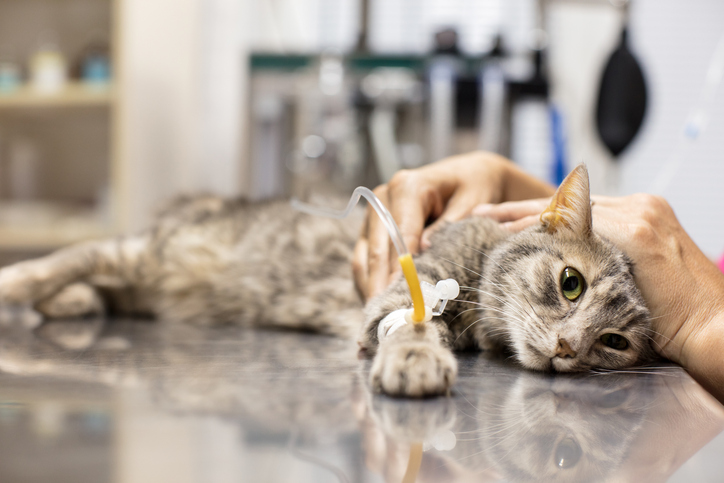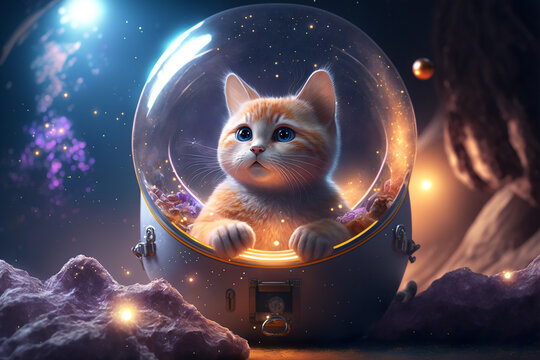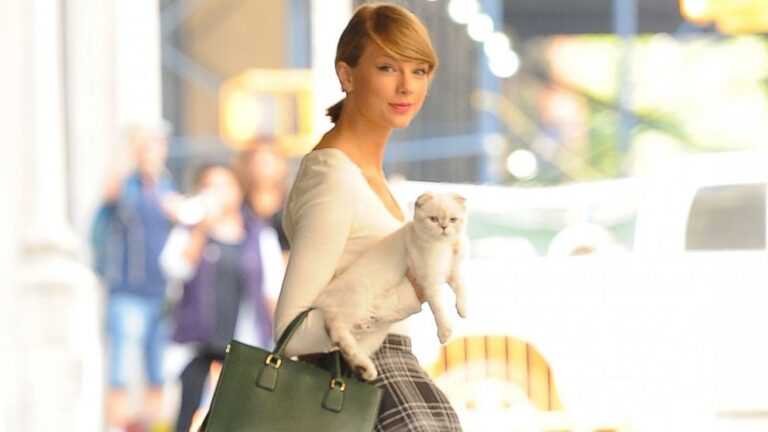Spacefaring Felines: The Curious Case of Cat Astronauts
Introduction:
Cats, with their innate curiosity and boundless love for exploration, have always been a subject of fascination for cat enthusiasts and scientists alike. As the world ventures into the vast expanse of space, a question arises: Can our feline companions join us in this cosmic journey? While the idea of spacefaring felines may seem like a whimsical notion, there have been several instances of cats venturing into the final frontier, showcasing their resilience and adaptability.
Space Cat Pioneers:
The first feline to embark on a space mission was Félicette, a French cat who was launched into space in 1963 aboard a Véronique AGI rocket from Hammaguir, Algeria. Félicette’s mission was short-lived, as she unfortunately perished during the re-entry phase due to a parachute malfunction. Despite this tragic outcome, her contribution to space exploration paved the way for future animal missions.
In 1968, the Soviet Union followed suit with Chernyy Kosmos (Black Cosmos), a black cat aboard the Zond 5 mission. Chernyy Kosmos returned safely to Earth, becoming the first feline to successfully complete a space mission.
Animals in Space Research:
The inclusion of animals in space missions served several purposes. Scientists sought to understand the physiological and psychological effects of space travel on living organisms, hoping to gain insights applicable to human spaceflight. Animal experiments helped assess the impact of microgravity, radiation, and isolation on biological functions, paving the way for safer and more effective human missions.
Spacefaring Cat Traits:
While the idea of a spacefaring cat may seem extraordinary, certain cat breeds exhibit traits that potentially make them suitable for space missions. Some of these traits include:
- Adaptability: Cats are remarkably adaptable creatures, capable of adjusting to various environments. Their innate curiosity and willingness to explore new spaces are valuable assets in the unpredictable and challenging conditions of space travel.
- Physical Resilience: Cats possess a natural ability to withstand harsh conditions, including extreme temperatures, changes in air pressure, and varying levels of gravity. Their agility and coordination also make them well-suited for navigating the confined spaces of a spacecraft.
- Highly Developed Senses: Cats have exceptional senses that could prove beneficial in space exploration. Their keen sense of hearing and ability to detect subtle vibrations could aid in the early detection of equipment malfunctions or anomalies. Additionally, their acute sense of smell might be useful in monitoring air quality and identifying hazardous substances.
Challenges and Considerations:
Despite the potential benefits of spacefaring cats, there are numerous challenges and ethical concerns that need to be carefully addressed:
- Limited Space: Spacecraft are typically compact and confined, presenting challenges in providing cats with adequate living and exercise space.
- Environmental Control: Ensuring a suitable and stable environment for cats in terms of temperature, air quality, and gravity requires specialized systems and monitoring.
- Psychological Well-being: Cats are highly social creatures, and prolonged isolation and separation from their human companions or fellow felines could negatively impact their mental health and well-being.
- Ethical Concerns: Animal rights advocates raise concerns about the ethical implications of subjecting cats to the risks and stresses of space travel.
Conclusion:
While the idea of spacefaring cats may capture our imagination, the reality is that many hurdles and ethical considerations must be carefully addressed before feline astronauts become a reality. However, the stories of Félicette and Chernyy Kosmos serve as a testament to the resilience and adaptability of cats. As we continue to push the boundaries of space exploration, who knows, we may one day witness our feline friends accompanying us on our cosmic journeys.







